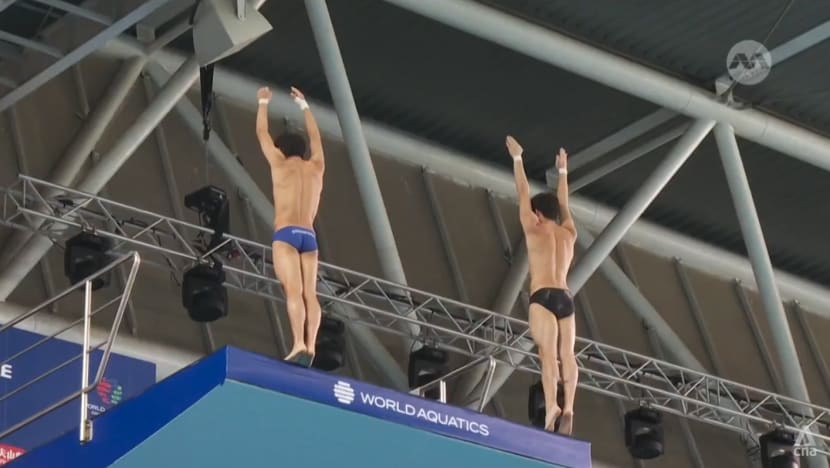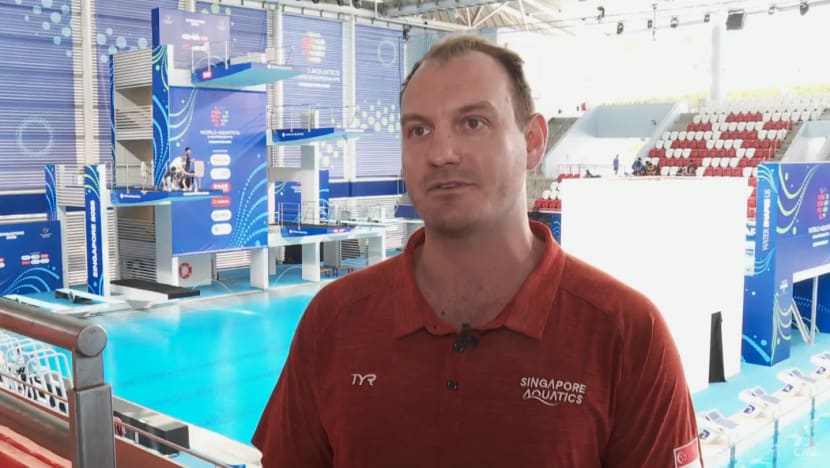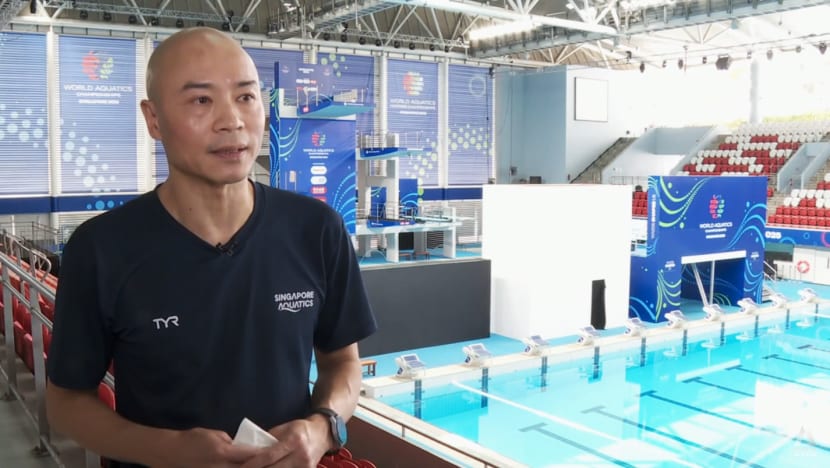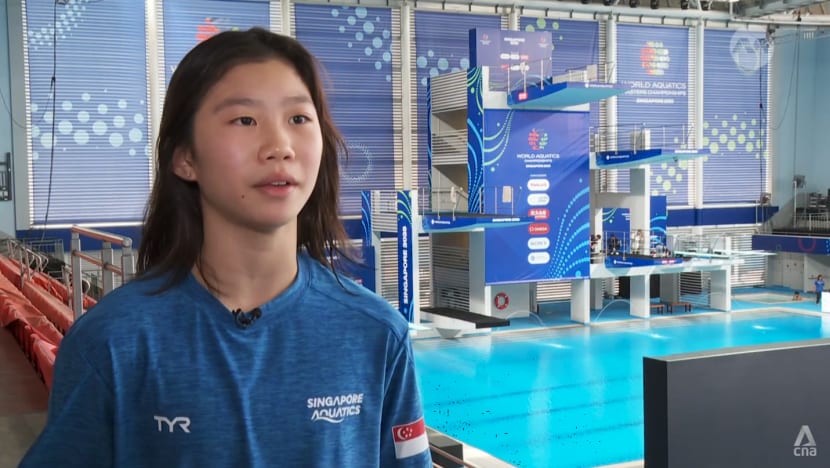Singapore to field largest-ever diving squad at World Aquatics Championships
The team comprises 10 divers, including five debutants - more than twice the number competing at the previous edition in Doha last year.

Divers train ahead of the World Aquatics Championships, to be held in Singapore from Jul 11 to Aug 3.

This audio is generated by an AI tool.
SINGAPORE: A mix of veteran and up-and-coming divers will represent Singapore as part of its largest-ever diving contingent at the World Aquatics Championships that begins on Friday (Jul 11).
The team comprises 10 divers, including five debutants. In comparison, it fielded four divers at the previous edition in Doha last year.
Diving is one of six disciplines making up the competition programme, and will take place at the OCBC Aquatic Centre in Kallang.
In all, 13 medals will be up for grabs during the 22nd edition of the Championships that runs until Aug 3.
GOOD CHANCE TO MAKE THE FINALS
After a hectic year of preparations involving training camps and overseas competitions, Singapore's diving team is ready to shine at home.
Daniel Campbell, Singapore Aquatics’ sport director (artistic swimming and diving), told CNA that he sees some divers potentially going through to the finals.
"We've not been in that position before (but) definitely semi-finals are on the cards. The expectation is not just to be there. We want them to turn up and put on a really good performance,” he said.

Campbell added that the team’s strategy for the competition is based on putting forward the best divers for each event.
“For every event that we have, we have certain qualification criteria that they've got to meet, so (we are) just making sure that we have a team that goes out to really put on the best performance that we can for Singapore,” he said.
Technology has also played a part in improving the performance of the team’s divers as they prepare for the world championship.
National head coach Charlie Tu said the team has recently begun using video feedback tools to analyse the performance of its divers.
“We use the data to compare to the higher level of other (divers) in the world to see what (is) the level we're missing,” he added.

He added that such analysis allowed coaching staff to look at techniques that are missing from each athlete and how to work on them.
Tu said preparations also included mental training for the divers.
DIVING INTO THE FUTURE
Better scouting and clearer pathways to the national set-up have also allowed Singapore to increase its number of divers in its ranks.
Among the country's brightest stars that will be competing in the upcoming competition is 13-year-old Ainslee Kwang.
The teenager, who began diving at the age of seven, will be participating in the 10m platform and synchronised 10m platform events.
She said that the familiar environment of competing at home has its advantages.
"It's … like a familiar crowd … and it helps me adapt faster. I get to see all the Singaporeans here cheering for me,” added Ainslee.
She had placed as the third-highest ranked Asian diver at this year’s World Aquatics Diving World Cup in Windsor, Canada.
Ainslee added that her coach has been fine-tuning her techniques and building up all her consistency for her five dives. Each diver performs five times each round during the women's competition.

She said competing on the world stage would also give her the confidence and resilience to perform under pressure as she eyes success at the SEA Games in December.
She has also set her sights on a bigger prize.
“(My) ultimate goal … is to eventually compete in the Olympics. I mean, it's everyone's goal, especially for athletes,” she added.
Campbell said the team wants to prove that it can stand tall against powerhouse nations like China and Malaysia as it looks to grow local interest in the sport.
Listen:
China swept all the diving gold medals at last year’s Paris Olympics, and Malaysia had previously won medals at the 2012 and 2016 Olympic Games.
Campbell added that competing in this year’s World Aquatics Championships would be a catalyst for future participation, driving a growth in the number of people picking up the sport, as well as improving team performance.
“We can do pretty major things in this sport and we've got to use this opportunity to really develop and see how we can push things forward,” he said.

















